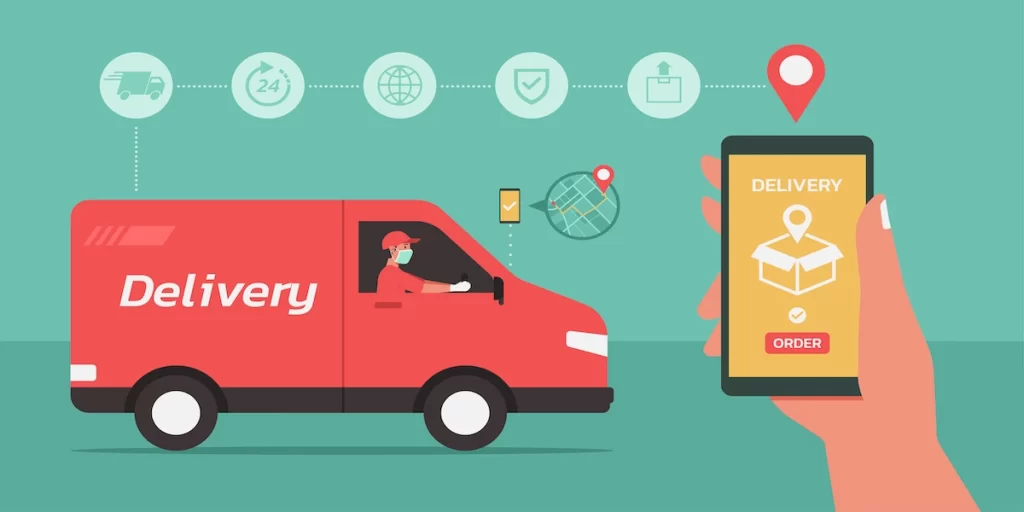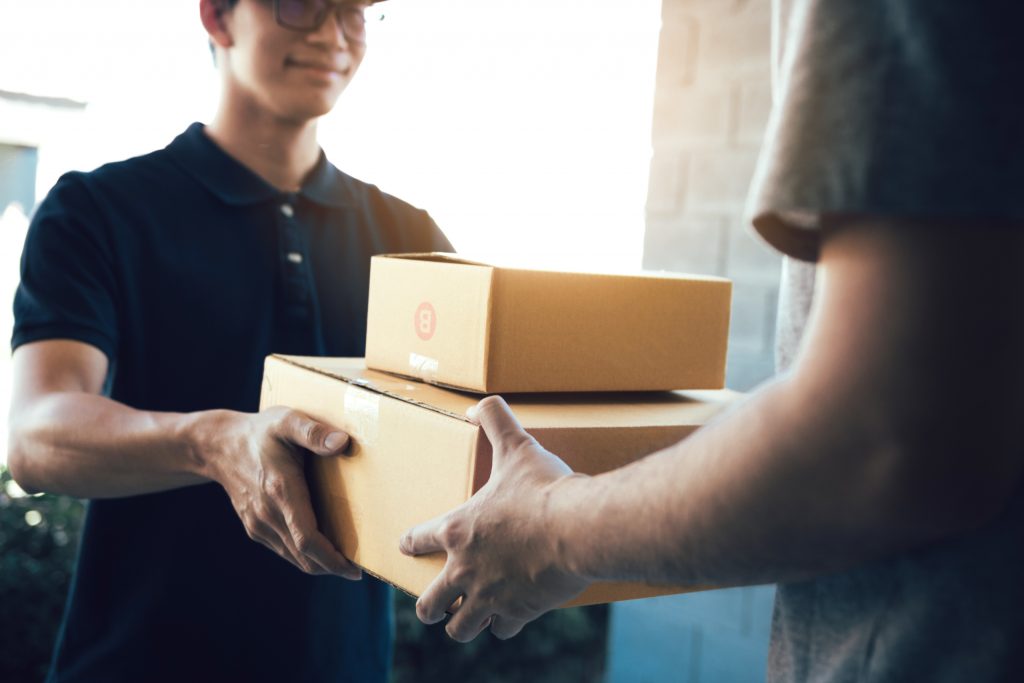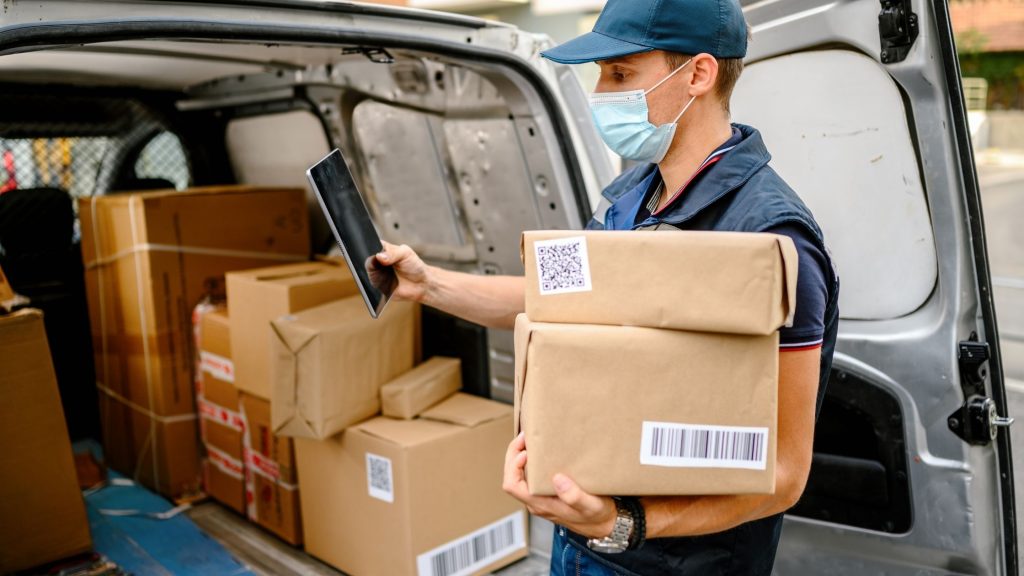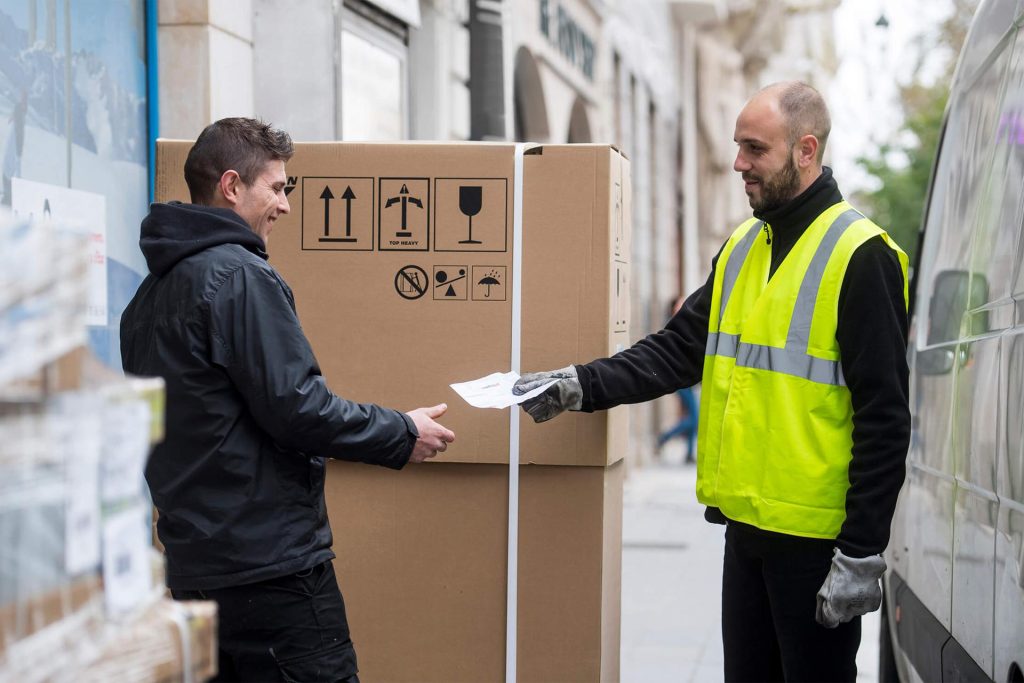Table of Contents
In delivering goods and new orders to the final customers, the last mile delivery UAE has assumed a strategic role in the e-commerce industry, more so in dynamic markets such as the UAE.
Last mile delivery UAE involves the movement of products from a distribution center to the final consumer.
Last mile delivery UAE is deemed to be the most expensive and complex as it usually covers the final mile.
This phase is highly significant because it involves issues regarding client’s satisfaction, delivery time, and general productivity.
The UAE represents the growth opportunities and challenges in last mile delivery services in countries with a continuously growing e-commerce sector and a highly diverse consumer market.
Whether these involve delivering goods to big metropolitan areas like Dubai or Abu Dhabi or the more isolated regions, on-time delivery is a requirement.
The level of development in logistics infrastructure along with high Internet usage and literacy of customers is conducive to creating the new concept of last mile delivery.
Let us uncover the details concerning the last mile delivery UAE in this blog focusing on such topics as the current state, issues, and opportunities for the development of the segment.
Thus, if you are a business owner seeking ways as to how you can improve your delivery system or If you are an online consumer wondering how packaged delves reach your doorsteps, here is a detailed account of the last mile delivery UAE.
What Is Last Mile Delivery UAE?
The last mile delivery UAE is known as the final part of the process when ordering goods online by assigning a delivery location, building a delivery route, and delivering the merchandise to the customer.
Last mile delivery UAE refers to the final link within the delivery supply chain and is critical in the UAE since it mainly involves delivery to consumers.
The process of delivery logistics and hence, last mile delivery deals with the final stage of distribution where a consignment is taken from a transportation center to the consumer’s home.
Fulfillment stage is found to be a very sensitive region in the logistics chain as it forms the first point of interaction with the customers as well as determines the speed and efficiency of delivery.
The last mile delivery UAE has hence emerged as a critical issue to address in the UAE because of the top-growing e-commerce markets and clients’ growing expectations for quick and efficient delivery services.
Embracing Green Last-mile Delivery in Dubai for 2024.
Key Components of Last Mile Delivery in the UAE
- Urban Logistics:
Dense Urban Areas: Accustomed to having a large number of people come to their city centers, cities such as Dubai and Abu Dhabi have high population density levels and high traffic congestion levels which results in a considerable challenge to mobility as well as an opportunity in terms of last mile logistics.
Infrastructure: The last-mile delivery is not an issue due to a plethora of transport interlinks as well as connectivity that is mesmeric in the form of road networks.
- Technological Integration:
Tracking Systems: Tracking and prompt reporting are outstanding qualities that increase authenticity of the supply chain for consumers and producers.
Automated Warehouses: Some of the common features that make up efficient and effective logistics include the following: Many organizations that offer logistics services employ automated systems to sort parcels in the shortest time possible as one way of avoiding time wastage.
- Diverse Delivery Options:
Standard and Express Delivery: For customers, there is the quite cheap and normal delivery option and there are also the express delivery services for the programs that need to be transported faster.
Same-Day and Next-Day Delivery: Recently becoming a trend in the e-commerce platform within the UAE, these options continue to meet consumers’ desire for quick fixes.
- Innovative Solutions:
Smart Lockers: These are being placed at different points, making it easier for the consumer to receive the parcels at a time that would be convenient for him or her other than having the products delivered at home.
Crowdsourced Delivery: Another example involves the operational business models such as the Fetchr and Careem business models, where independent freelance car drivers are employed to guarantee more flexibility in the delivery services.
- Sustainability Efforts:
Eco-Friendly Practices: There are innovations in last mile delivery UAE such as using electric vehicles and minimizing carbon footprint to give a face to sustainability.
Factors or challenges affecting last mile delivery UAE
- Traffic Congestion:
Urban Traffic: Concerning the external environment challenges, a challenging condition for actualizing timely delivery is congestion in the major cities that contributes to slower traffic hence extended time for the deliveries.
- High Consumer Expectations:
Demand for Speed: Consumers have become very demanding and this puts pressure on the logistics companies to ensure that the delivery services are fast and efficient .
- Cost Management:
Operational Costs: Managing costs of delivering goods while taking into consideration the requirement of delivering goods on the Same day/ Express is another crucial task where one has to find the right balance between cost, customer satisfaction, and profitability.
Know more: What Is Last mile Delivery in logistics and Supply Chains?
Last Mile Delivery UAE Tracking

Given the current growth rate of the e-commerce industry in the UAE, ensuring timely and effective last mile delivery UAE has never been as important. Another important aspect to consider in this last step of delivery is tracking the flow of interaction minimally.
The tech being employed gives both the business personnel and the consumer a chance to track the journey of the parcels up to the last mile hence increasing security, timely delivery, and efficiency.
Reasons why last mile delivery tracking is important
Enhanced Customer Satisfaction: It is worth pointing out that people in the modern world want to see transparency and tracking progress of their shipments. They use tracking systems to get up to date details about the location of their parcels and the time they are expected to reach the intended destination or if they would be delayed.
Improved Operational Efficiency: In the case of businesses, tracking systems assist in the best route to follow in the delivery process, the required time to deliver and allocation of resources. This in turn has a positive impact to reduce costs and increase operational productivity.
Increased Accountability: Real-time tracking allows those in charge of deliveries to stay responsible for the routes they take and the time spent, which eliminates instances of lost or misplaced packages.
Data-Driven Insights: Following technologies gather relevant information that will be helpful to create better delivery plans in the future, help to provide better experiences to consumers and define some problems.
Technologies that can help to track Last Mile Delivery UAE Services
GPS and IoT: With the help of GPS, which this technology was initially created as and, in combination with IoT, one can track delivery vehicles and packages in real-time. It also facilitates the sending of efficient location updates and enables the display of the best paths.
Mobile Apps: Shippers and third-party logistics providers (3PLs) inturn, engage their users through mobile apps to share delivery tracking information. These apps may include the ability to notify the customers on the status of delivery, include ability to predict time of arrival, and communication with those delivering.
Barcode and QR Code Scanning: Robust technologies in scanning help to show the status of packages as they undergo several processes during their delivery. This also assists in tracking the various movements of each parcel, so that they do not get lost along the channels.
RFID Technology: RFID tags are attached to the packages and the inventory to allow tracking of packages, items or an inventory in a real-time basis. According to this innovation, tracking is made more accurate than if it were done by humans, and it also minimizes errors.
Read more: AI in Last-Mile Delivery Across the UAE.
The challenges of last mile delivery tracking in the UAE
Geographical Diversity: Another factor that makes tracking more difficult is the increase in geographical characteristics in the UAE such as highly populous regions, rural areas, remote areas and others making it difficult to track all the UAE’S regions with accuracy.
Traffic Congestion: Platforms in locations that heavily experience traffic jams such as Dubai and Abu Dhabi are likely to face strained delivery often leading to impaired tracking.
Customer Availability: Scheduling deliveries around the customer’s availability is difficult since sometimes they may not be at home or work to receive their parcels hence leading to deliveries being made at odd times resulting in high logistic costs.
Solutions and Innovations
Smart Lockers and Pickup Points: On the matter concerning customer availability, some of the measures being implemented include smart lockers and identified pickup points. These enable customers to pick up their packages independently that minimize the chances of delivering the same few times.
Real-Time Updates and Notifications: Notifying customers about the parcel delivery by sending updated information through text messages or emails and informatics and mobile applications make the system more transparent for customers.
Advanced Routing Algorithms: Advanced routing algorithms are useful in planning efficient delivery routes, retrospecting time losses and avoiding congestion in efforts to make timely deliveries.
Collaborative Delivery Models: The last yet critical issue is to highlight the fact that in order to cover remote areas, there is a need to cooperate with local delivery services and make use of crowd-sourced delivery options where necessary and possible.
Last Mile Delivery UAE Price

This is because the last mile delivery UAE costs depend on factors such as the distance and the speed of delivery in the UAE, the size of the parcel and extra services needed.
Since e-markets have emerged as a preferable way for providing goods and services for buyers and selling products for sellers, it is important to better understand the specifics of last mile delivery pricing.
The cost of last mile delivery UAE has been a critical issue that affects distribution across the globe, and the following factors influence the last mile delivery UAE prices.
- Distance and Location:
Urban vs. Rural Areas: Certain distances also make a significant impact, especially delivering in major cities such as Dubai or Abu Dhabi that may be cheaper than delivering to far-flung regions or rural areas since logistics hubs abound there.
Delivery Zones: Organizations working in the area tend to segment the land into sections, with varying pricing structures. BZCS are cheaper to deliver within the zone in which they are located than across a number of zones.
- Delivery Speed:
Standard Delivery: This is the cheapest of the options and normally should take between two to three days.
Express Delivery: In case of orders that require special attention, it is possible to order an express delivery for a fee that usually has a delivery time of 1 day or less.
Same-Day Delivery: This service is richly priced and is often accessible only in large and developed metropolitan areas only.
- Package Size and Weight:
Small Packages: Precise and manageable packages and products are less costly when it comes to delivering them.
Large or Heavy Items: These attract higher charges because they entail more handling and transportation than those of small parcels or letters.
- Additional Services:
Cash on Delivery (COD): In many cases, this service shifts for an additional cost.
Insurance: Thus increasing the cost and adding insurance for high items to be insured.
Special Handling: Some services may include handling of vulnerable or delicate items, which can attract certain charges.
- Delivery Volume:
Bulk Discounts: Some of the essential things to consider when seeking freight shipping services include the following; Large volumes of shipping can often be cheaper and therefore can be negotiated.
Subscription Models: Some of the companies provide options of delivering and shipping products based on subscriptions where there are usually reduced prices agreed according to the delivery frequency.
An analysis of the pricing of last mile delivery UAE
- Local Couriers:
Standard Delivery: The cost normally ranges from AED 10 – 20 for local services and lesser for packages within the same city limits.
Express Delivery: Price per session may cost within a range of AED thirty to AED fifty depending on the emergency and the distance involved.
Same-Day Delivery: Usually begins at AED 50 and may be greater based on the geographic location and size of that pack of cards.
- E-commerce Platforms:
The last mile delivery options directly with the e-commerce platform often come with affordable rates and are especially inexpensive for regular customers. Price reductions/incentives: The use of coupons, free samples and things like that can be used which also form part of promotional tools.
Innovations and Cost-Effective Solutions
- Shared Economy Models:
It helps to cut on overall expenses, and current ride-sharing platforms, such as Fetch, and Careem employ this model for delivery services.
- Smart Lockers:
These enable the customers to afford to pick their consignments from felt places hence minimizing the home delivery costs.
- Crowdsourced Delivery:
This concept can be witnessed through organizations such as Shipa and Mrsool where the drivers are sourced from the crowd hence incurring less overhead to offer similar prices.

The current trend of last mile delivery UAE includes fast growth and frequent changes due to the UAE’s well-developed transport system and the consequent development of e-commerce.
The use of real-time tracking, automated warehouses, and strong delivery network like delivery platforms have made a revolutionary change in last mile delivery.
Nevertheless, the UAE is still experiencing difficulties such as urban traffic congestion as well as high level of market expectations for the supply chain life cycle; yet, currently the logistics sector presents evident tendencies of sustainable development.
Other measures to reduce reliance on fossil fuel, including the use of electric cars as well as smart lockers employed by the company also shows the efforts being made to better the quality of a service given while reducing the negative impact to the environment.
Given the increasing trend in the need for faster and efficient delivery services we have seen throughout the world, businesses operating in the UAE must be prepared to deliver at a faster pace and improve on their delivery services standards by adopting innovative technologies, and being environmentally conscious.
The UAE’s last mile delivery market in the future is expected to become more progressive and customer-oriented for delivering a better production and services prospect to deal with the growth and challenges in the logistics industry.
In conclusion, the current situation and the UAE’s plans provide the right background for the development of last mile delivery services and the use of innovative solutions.
UAE will continue to come up with improvement trends in the delivery as well as enhance the efficiency of the last mile services, thus making it efficient.




